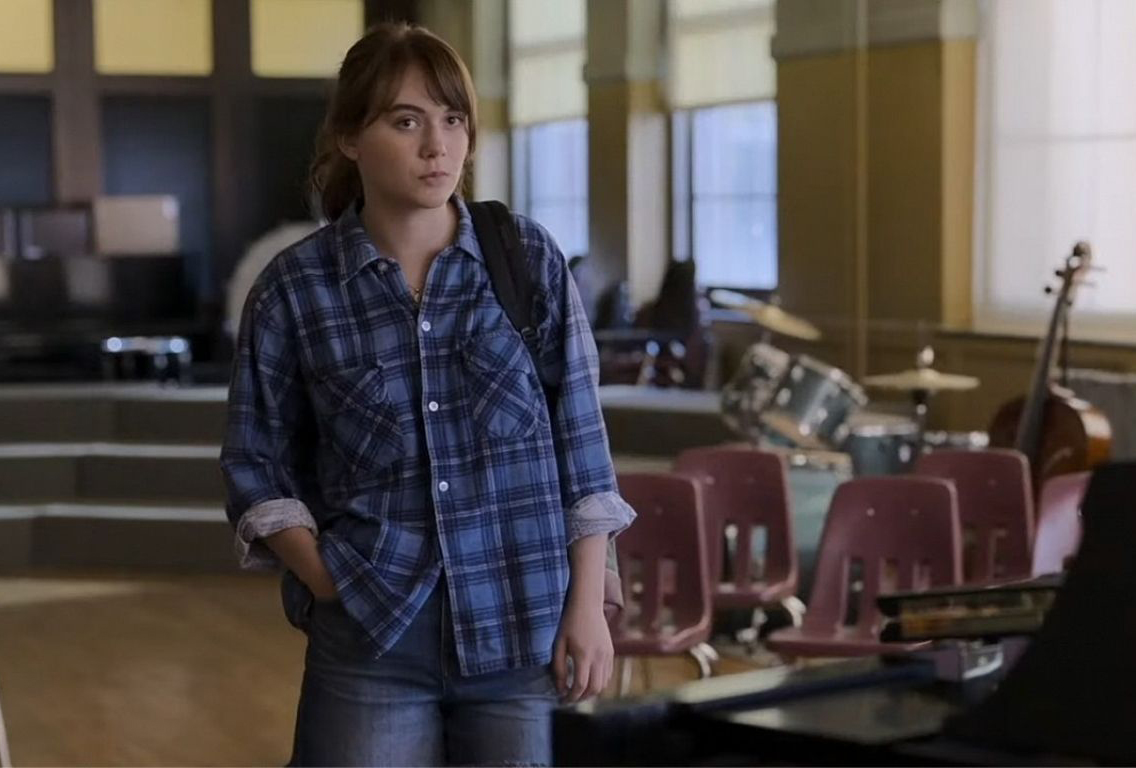Grand Jury Prize and Sundance Film Festival 2021 crowd-pleaser “CODA” has Sian Heder deliver an emotional film that plays all the right notes to move the audience, much like a puppeteer controlling its marionette.
Coming-of-age stories have been tackled since forever and in many ways. Movies like “The 400 Blows” (1959), “Rumble Fish” (1983), “Pariah” (2011), and “The Edge of Seventeen” (2016) are examples of how to take on the subject of growing up and finding your true self in various ways. It can be mixed with genres other than the classic dramatic or comedic portrayal, either through crime, horror, or fantasy. In “CODA,” it uses music and passion as its driving force to achieve a story full of warmth.
Seventeen-year-old Ruby (Emilia Jones) is the only hearing member of a deaf family, a CODA, child of deaf adults. She acts as the family’s interpreter and works on the fishing boat everyday before school with her father, Frank (Troy Kotsur), and older brother, Leo (Daniel Durant). When Ruby joins the school’s choir, she discovers a singing gift and finds herself drawn to another class member, Miles (Ferdia Walsh-Peelo). Her tough-love teacher, Bernardo (Eugenio Derbez), encourages her to apply to Berklee, a highly prestigious music school; however, she finds herself in a battle with herself because of the obligations with her family and her dreams.
The movie isn’t a breakthrough in terms of coming-of-age narratives, and it is very predictable. From the first five minutes, you could guess almost everything that will happen in it. The chasing of the dream, the family complications in both the main character’s aspirations and their jobs, and the teenage love story touch upon every trope of the “small-town girl who wants to chase her dreams” scenario. A film where you could predict its entirety is bothersome, yet “CODA” manages to slightly work its way because it is crafted with tremendous care. Like Darius Marder’s “Sound of Metal,” “CODA” uses both speech and sign language to deliver the dialogue.

It is admirable how the filmmakers here manage to have great comedic timing using American Sign Language (ASL); it shows that it can be as expressive and clever as any other language. Some jokes may not be that relatable to a broader audiences; still, it gets some points for furnishing the film with a comical spike. What makes it tick is its comfort, charm, and heart, which packs a ton. Stories like these don’t work if you don’t have that emotional attachment to the narrative or characters. You need to have that reason for caring to sink your teeth into the story. Sian Heder makes sure to connect the audience to the story with quippy jokes and affecting conversations. Not only that, but “CODA” tells a story that people of both hearing and deaf communities can apprehend within themselves; it’s a story that they can connect to.
“CODA’s” main stars provide great performances which help the audience stick with it through its entirety, with three of them being deaf. Marlee Matlin even threatened to drop out of the picture if they didn’t cast deaf actors in the respective roles. There are a few standouts in the cast. Oscar-winner Matlin is a natural scene-stealer, and this movie is no exception. She is extremely hilarious and charming that you wish she was in every scene. However, there is a breakout performance by the film’s lead, English actress Emilia Jones, who learned ASL for over nine months to take on the role. You may have seen her in Netflix’s “Locke and Key,” but her work here is pretty good in comparison.
You may have seen a similar story, as I mentioned before, but it still finds a way into your heart like other movies don’t. There are times where you want the story to go another unconventional route because the one it takes is foreseeable. But, in the end, “CODA” works because of Heder and how she orchestrates the script to be touching while funny, and the brilliant performances by the cast. I’m quite excited to see what she delivers with her next feature.